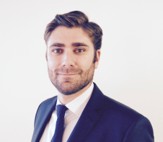Hiring in the capital markets: Becoming a top candidate

Hiring in credit and capital markets is cyclical, often swinging with sector dynamics and geopolitical events. Against that backdrop, Pierre-Adrien Mutter, a seasoned recruiter in financial services, and Founder of Optima Partners Suisse, stresses that the strongest candidates share two threads – technical fluency and human skills that translate complex insights into clear, actionable ideas. “Success requires a balanced mix of soft and hard skills,” he says. “Commercial awareness and excellent communication — the ability to translate complex financial insights into clear, actionable ideas — are critical.”
What distinguishes top candidates today?
Pierre-Adrien notes that a good candidate starts with role-specific depth. For technical positions, he looks for “strong quantitative and analytical backgrounds, coding and financial modeling expertise, risk management skills and genuine interest in new areas such as AI and decentralized finance.”
For those working in client facing roles, Pierre-Adrien is clear on what makes a good candidate. “It’s essential to pair technical depth with commercial and communication skills – understand market drivers and client priorities, then translate complex analyses into clear, actionable recommendations for stakeholders.”
What are the skills that tip the balance?
Demand varies by sector and follows cycles, but one theme persists across markets: tech-literate profiles. “New credit officers and underwriters are increasingly expected to bring not only strong technical foundations and coding skills (Python, R, SQL), but also developed soft skills,” Pierre-Adrien shares. They must adapt quickly and communicate effectively with all stakeholders in the value chain from clients to highly technical internal colleagues.
Communication is the decisive edge “not only for client-facing roles but also for support functions,” says Pierre-Adrien. In a complex and changing environment, adaptability and flexibility matter, especially amid regulatory shifts, market volatility, and new technologies. He regularly sees employers prizing relationship-building and cultural fit, along with “proven resilience and professionalism under pressure (ideally supported by references).”
“AI is reshaping finance,” Pierre-Adrien says. Candidates don’t need mastery of every tool, but they do need to show “curiosity and willingness to learn.” As routine tasks shift to chatbots and automated systems, human capabilities become more valuable — empathy, client service, problem solving, and ethical judgment.
If you are mid-career Pierre-Adrien distills his advice into two pillars: networking and expertise. “Credit is a small world — people meet again and again at industry events or across institutions. Maintain your network consistently.” On skills, breadth and currency are non-negotiable. “You don’t have to be an AI expert, but you must stay up to date. Invest in training to validate your expertise and acquire new capabilities.” In practice, that means staying tech-literate with data tools and AI awareness for example; building sector specialization; and proactively nurturing relationships both with clients and internally.
And Pierre-Adrien’s tips for interview success? “Come with concrete, commercial anecdotes. Be ready to share numbers and examples of how you generated revenue, won clients, or led teams — clear, measurable outcomes leave the strongest impression.”
What are the current hiring trends in credit and the capital markets?
At the seniority level, Pierre-Adrien sees the most activity at VP/Director level, where firms can balance cost with expertise. MD-level hiring is more selective and reserved for professionals who can show “clear commercial impact.”
He has observed that compensation structures are evolving toward transparency. “While base salaries are relatively stable, bonuses and flexibility (such as hybrid work, mobility) are being used more strategically.”
International mobility remains attractive even as relocation decisions take longer. Furthermore, diversity has moved from aspiration to mandate, “Diversity is now a firm priority, with measurable targets for gender balance and international representation.”
Why do job offers fail?
The biggest derailers are avoidable. Misaligned expectations and poor communication can stall processes or sink offers, so Pierre-Adrien urges clarity early on. “Make sure you fully understand the proposed compensation (base, bonus and any benefits). Be clear on the working conditions (remote work, flexibility, travel). What are the training opportunities? What is the likely career progression? Clarity is key.” On the employer side, he cautions that long decision cycles, hesitation, and lack of timely feedback often cause strong candidates to walk away, stressing that “transparency and responsiveness are critical from both sides.”
Key takeaways
Top performers in credit and capital markets blend technical rigor with communication, adaptability, and commercial impact. The path forward is clear – align role expectations early, stay tech-literate, invest in training, build sector specialization, and cultivate a resilient network. As AI and market cycles reshape the landscape, Pierre-Adrien’s bottom line holds true – curiosity, clarity, and demonstrable results set candidates apart.






